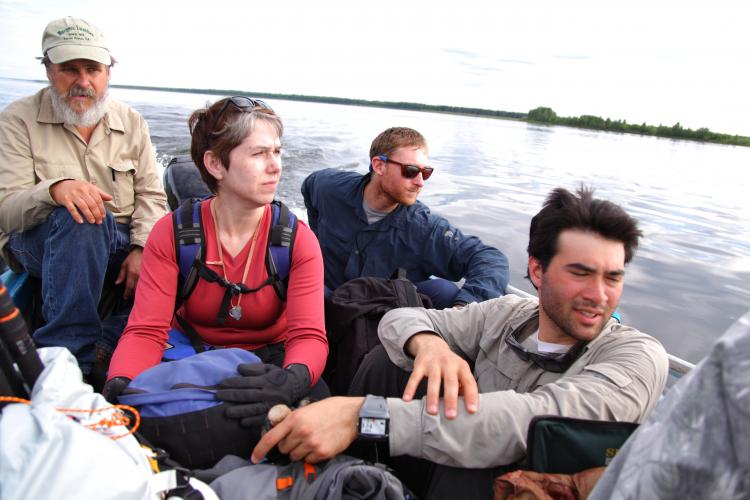

How to go from eating mosquitos in Siberia to leading a NASA mission
source link: https://arstechnica.com/science/2022/07/how-to-go-from-eating-mosquitos-in-siberia-to-leading-a-nasa-mission/
Go to the source link to view the article. You can view the picture content, updated content and better typesetting reading experience. If the link is broken, please click the button below to view the snapshot at that time.
That's a lot —
How to go from eating mosquitos in Siberia to leading a NASA mission
An autobiography covers a career in science that even its author admits is “curvy.”
Howard Lee - 7/2/2022, 11:30 AM

Lindy Elkins-Tanton is a Siberian-river-running, arc-welding, code-writing, patent-holding, company-founding, asteroid-exploring, igneous petrologist professor. At various times, she has been a farmer, a trainer of competition sheepdogs, a children’s book author, and a management consultant for Boeing Helicopters. She’s currently a professor at Arizona State University, she helps run a learning company, and she is the principal investigator for NASA’s “Psyche” mission to a metal asteroid.
Her self-described “curvy” career path has taken her research into planet formation, magma oceans, mass extinctions, and mantle melting. The results she’s generated have been foundational and have earned her a constellation of prestigious awards. There is even an asteroid—Asteroid 8252 Elkins-Tanton—named after her.
Given all that, perhaps the biggest revelation in her new autobiography, A Portrait of the Scientist as a Young Woman, is that this stellar high achiever was plagued by the same doubts and lack of confidence that afflict the rest of us. She wavered between forestry and geology as she was applying for college, she was stymied by organic chemistry as a freshman, and she was told she either wasn’t studying hard enough or wasn’t good enough. At times she felt she didn’t belong, and at other times she was told so. But Elkins-Tanton overcame those obstacles—and others far more profound.
To cover all that ground, Elkins-Tanton braids several different threads into one book.
From Russia with lava
One thread is a fascinating account of her adventures as a geologist, particularly her expeditions to the remotest wilds of Siberia. There, she found herself helicoptering onto the tundra and navigating freezing waters in a pontoon boat held together with duct tape, sharing an aircraft cargo bay with thawing, smelly caribou carcasses, sipping vodka around the campfire in the snow, and eating in clouds of mosquitos so thick that the insects landed in her food as it was en route from her bowl to her mouth. She also recounts even less glamorous aspects of those trips: the occasionally difficult team dynamics, the fruitless quest for zircon crystals, wrangling Russian permits, and a scary escape from an alcohol-addled local.
AdvertisementOver several years, these expeditions netted 850 pounds of samples that led to a slew of papers from a multi-institution, multi-nation group of researchers. These conclusively tied the Siberian flood basalts to the end-Permian mass extinction, a key result for both biology and geology.
She also describes her early research building high-pressure furnaces to melt rock powder. She casually mentions how her arc welder used to shock her via her eye socket. These furnaces would run for six months at a time, occasionally breaking with “bangs like gunfire.” After almost a year of building and running the experiment, her samples hadn’t melted, so she simply began again at an even higher temperature and pressure.
Manifesto
Another thread in the book amounts to a manifesto rejecting the traditional ways of teaching science and math as being “like trying to train dogs by using electric collars,” where progress is an ordeal of tests and grades. “There’s a myth that the people with high academic research achievement got there through an inherent disciplinary genius or a drive from childhood,” writes Elkins-Tanton.
Her approach favors asking questions, finding the answers through research, and synthesizing the results, which doesn’t normally happen until the postgraduate level. These ideas led her to co-found Beagle Learning, an education platform, and to patent a system of inquiry-driven learning.
Recommend
About Joyk
Aggregate valuable and interesting links.
Joyk means Joy of geeK